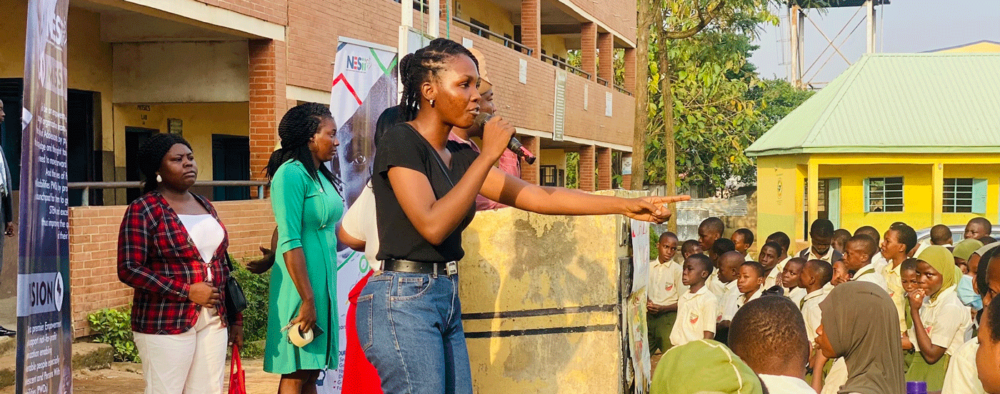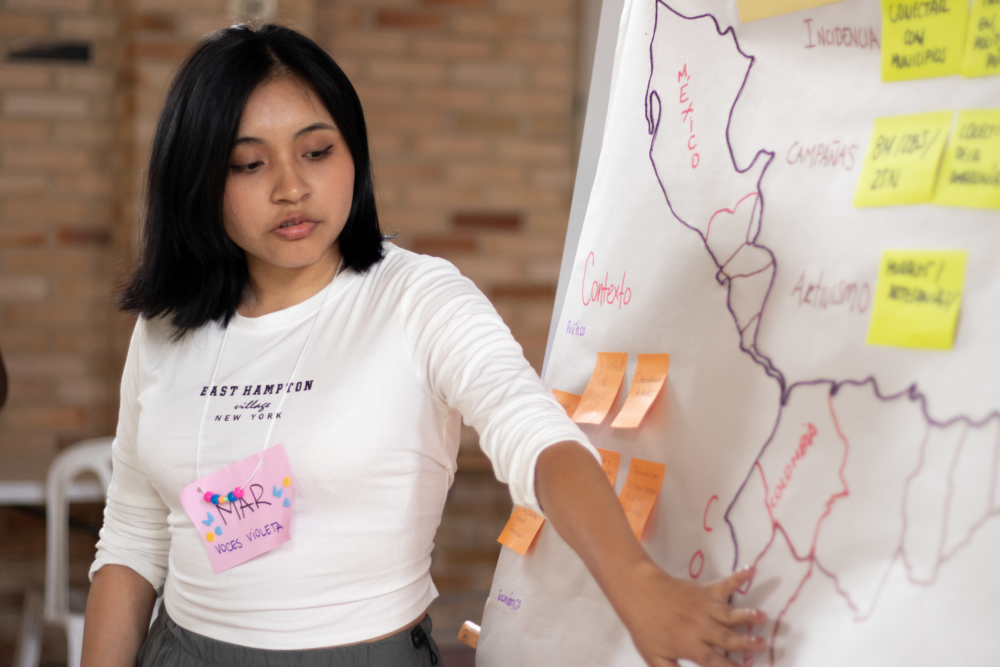
Youth power
Youth power
Editor’s note: This blog post is also available in Spanish.
Since late 2022, GFC has convened a diverse group of 12 leaders from 12 countries through its Resourcing Community-Led Change strategy group. These leaders, called the Change Champions, include eight GFC partners, two Youth Leadership Council members, and two grassroots allies. The Change Champions represent both nascent groups and more established organizations working on a multitude of issues impacting the wellbeing of children, youth, and their communities. Of the participants, two-thirds are between the ages of 18 and 30, while one-third are over 30. This unique intergenerational participatory design process within philanthropy is critical to GFC’s strategic priority of shifting the funding ecosystem and grounds GFC’s advocacy in what matters most to community and youth leaders.
The Change Champions first explored the challenges they face in accessing and sustaining funding that enables them to thrive. While operating in different contexts, all have encountered systemic barriers within philanthropy and global development – from bias and lack of trust to overburdensome requirements and rigid funding that doesn’t adapt to their on-the-ground realities. Far too often, they have found that truly addressing community needs is at odds with meeting donor obligations.
The Change Champions then explored what changes are necessary for community leadership to flourish. They recognized the power of trust-based partnerships and flexible funding for community-led organizations – and want to make them the norm in philanthropy.
We invite you to learn more below about each of the Change Champions and join their calls for change in philanthropy and global development.
Speaking and interview opportunities: If you would like to interview one of the Change Champions or invite them or GFC to speak, please be in touch at press@globalfundforchildren.org.
“I believe in long-term funding because it goes beyond just numbers, allowing us to create real and lasting change. Lived experiences are crucial data points that matter as much as any statistic. By prioritizing ongoing support, we can build a future that truly values the impact on people’s lives.”
Anmol is the Sexual and Reproductive Health, Rights, and Justice Coordinator at The YP Foundation (TYPF). TYPF is a youth-led organization that facilitates young people’s feminist and rights-based leadership on issues of health equity, gender justice, sexuality rights, and social justice. TYPF recognizes young people as skilled and aware leaders of social change and ensures that they have the information, capacity, and opportunities to inform and lead the development and implementation of programs and policies that impact their lives.
“I hope more and more donors will envision us as their long-term partners rather than implementers of programs, and that our relationship will always be based on trust. Long-term partnerships help local organizations grow in a healthy way and run sustainable programs. This leads to good and long-lasting changes in communities.”
Anna is the Youth Center Coordinator at Informal Education Center “Diversity,” which empowers teenagers and youth to make social changes by using nonformal education methods and creating a safe space. The organization focuses on vulnerable youth (girls from rural regions, LGBTQI young people, ethnic minorities) in order to amplify their voices and include them in youth participation processes.
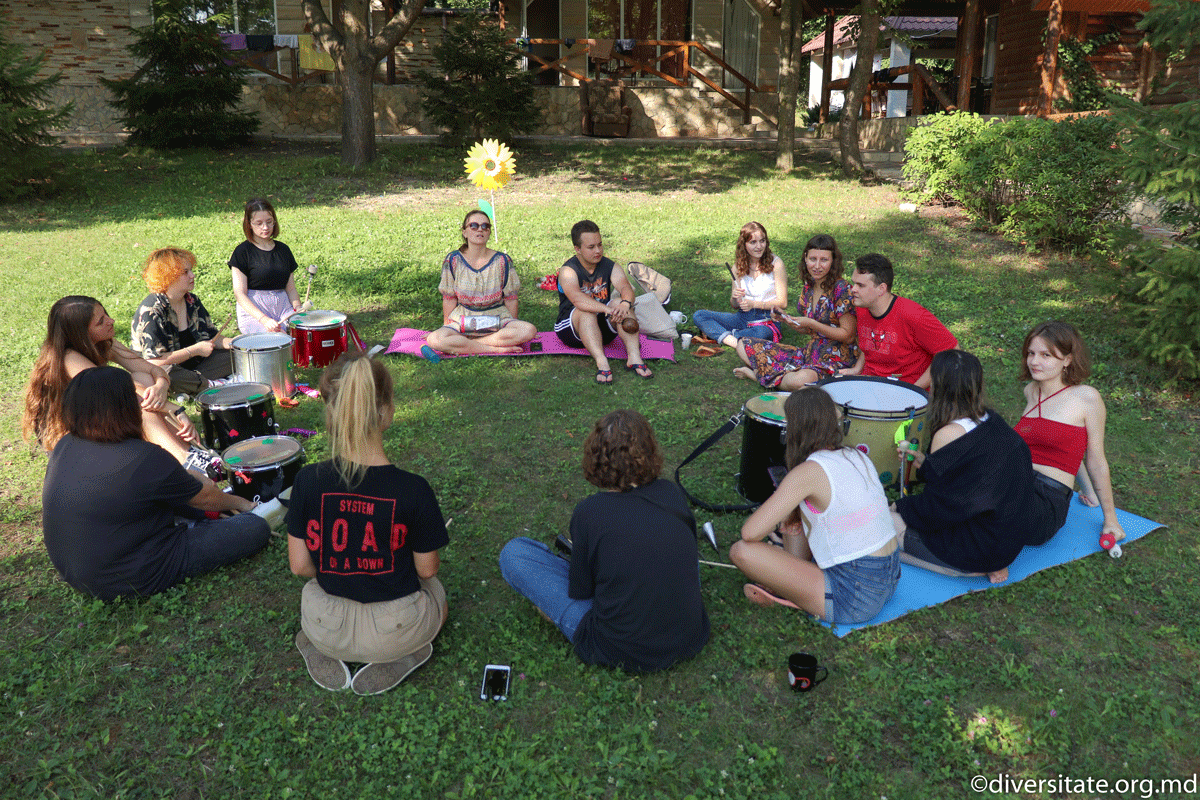
“In the dance of change, flexible funding becomes our nimble partner, leading the way through challenges and empowering us to thrive.”
Chidinma is a member of GFC’s Youth Leadership Council and the Executive Director of Mildheart Care Foundation, a nonprofit organization dedicated to fostering positive change in the lives of children and young people across diverse sociopolitical backgrounds, transcending religious and cultural boundaries. Its goal is to empower and equip the younger generation with comprehensive information and guidance to make informed decisions regarding their sexual and reproductive health and overall wellbeing.
“The world has changed incredibly, so why not change the bureaucratic processes as well? Youth are ready to change the world. They just need support and to be believed in. Flexible funding sees the real impact of the stories and community change and not just the reports or numbers.”
Kimberly is the Vice President of Red de Jóvenes Artistas por la Justicia Social (Network of Young Artists for Social Justice), a network of young people from different departments in Guatemala who use art as a tool for advocacy and empowerment. Its members have organized workshops, festivals, murals, trainings, debates, and exhibitions to spark dialogue, raise awareness about issues impacting youth, and influence public policy.
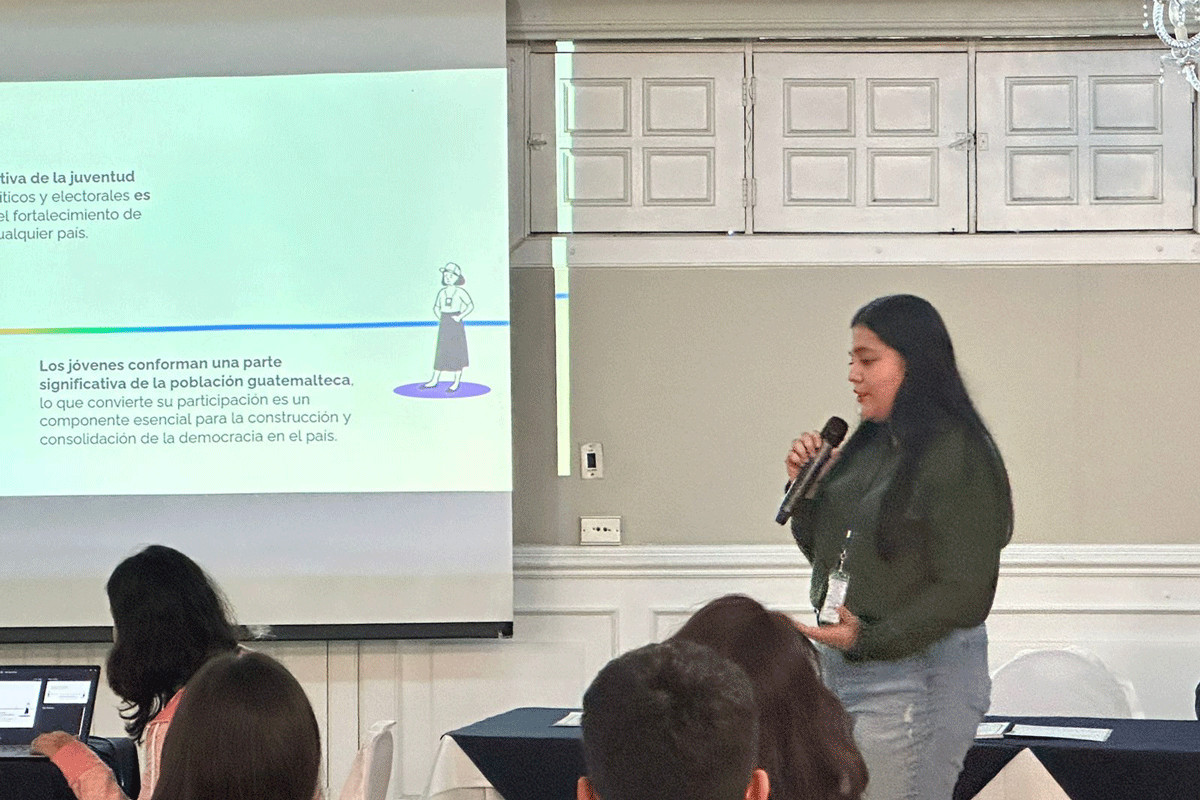
“Advocating for a flexible funding ecosystem not only opens doors to greater inclusivity, innovation, and empowerment within and beyond our organization but also underscores the significance of content-aware and conflict-sensitive intervention. I strongly believe that there are huge resources and potential in local communities that should be harnessed and amplified through strategic investments and partnerships.”
Lusine is the Network Manager of Frontline Youth Network (FYN), which connects and empowers young people from rural and border communities of Armenia. FYN aims to create a platform where youth actively shape policies and drive positive change in society, fostering their participation in building sustainable peace.
“Changes in the funding ecosystem are important to us because they empower organizations to respond effectively to any unforeseen challenges and help in bringing innovation and resilience in our mission to make an impact.”
Wardah is the Founder and CEO of KhudKaar, a social enterprise that nurtures the community-building spirit in Layyahthrough cultural activities, capacity development programs, emergency food relief, and fundraising for girls’ education. KhudKaar also operates KhudKaar House, a community center where young people come to learn digital skills to find employment.
“We believe in the power of collective action and in the capacity to transform lives through our dedication and commitment to causes that really matter. Together, we are forging a path towards a more solidary and sustainable future.”
Angy is the President and Founder of Mujeres Fuertes (Strong Women). Located in rural Peru, Mujeres Fuertes is dedicated to women’s economic empowerment and the improvement of the life conditions of girls, women, and youth in rural and periphery zones. Through programs and projects, the organization provides educational, leadership, and skill-building opportunities. It actively works to advance sustainable development, promoting gender equality, community participation, and financial independence.
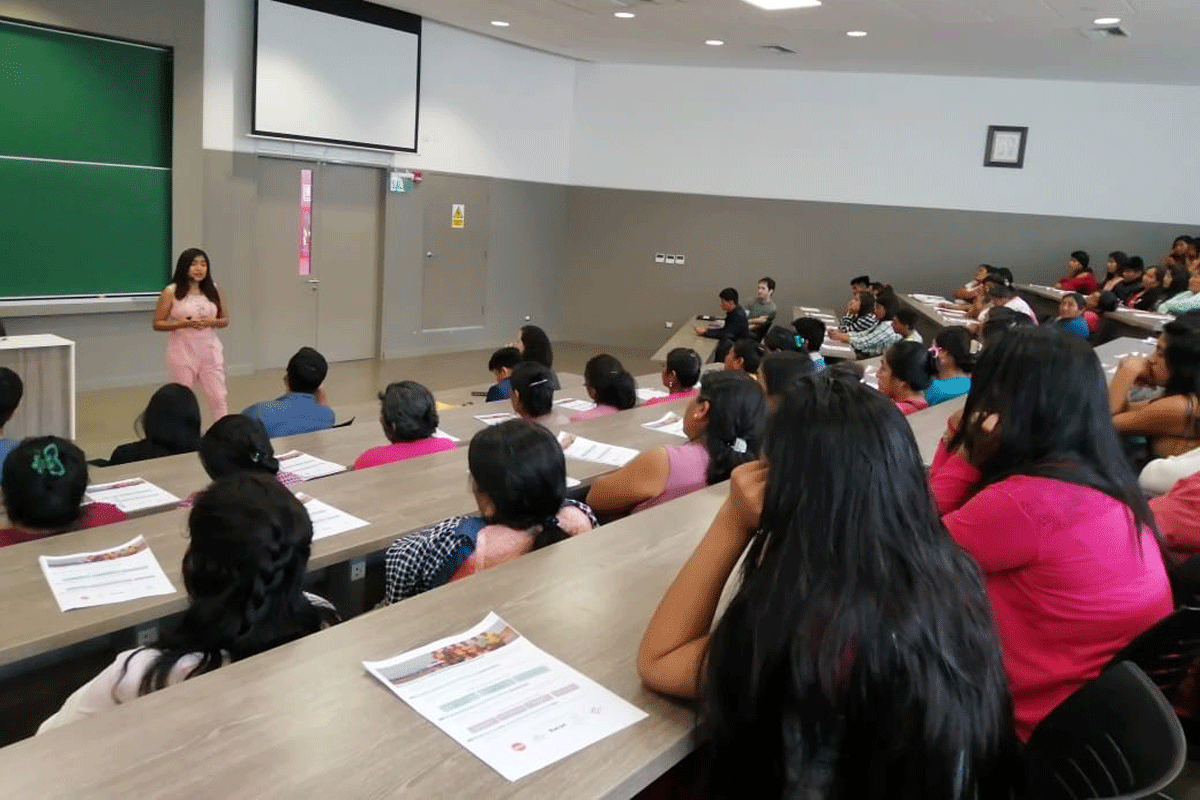
“Flexible funding is intended to enable organizations to validate, adjust, and generate more specific, timely, and lasting social intervention proposals for the beneficiary communities.”
Marcela is the Director of Fundación Dar Amor (Give Love Foundation) in Cali. Fundación Dar Amor provides preschool and after-school programs for supplemental learning, violence prevention, and self-care, focusing on supporting children living with HIV and on diverse prevention programs for adolescents.
“A funding environment focused on impact, flexibility, and sustainability empowers us to make real change for our communities.”
Teboho is the Director of the Women First Self-Help Program, which supports young women entrepreneurs to promote women’s empowerment, gender equality, and poverty reduction. Located in Maseru, the organization provides training in business and entrepreneurship, jewelry making, and other topics to empower young women to become self-reliant and support their families.
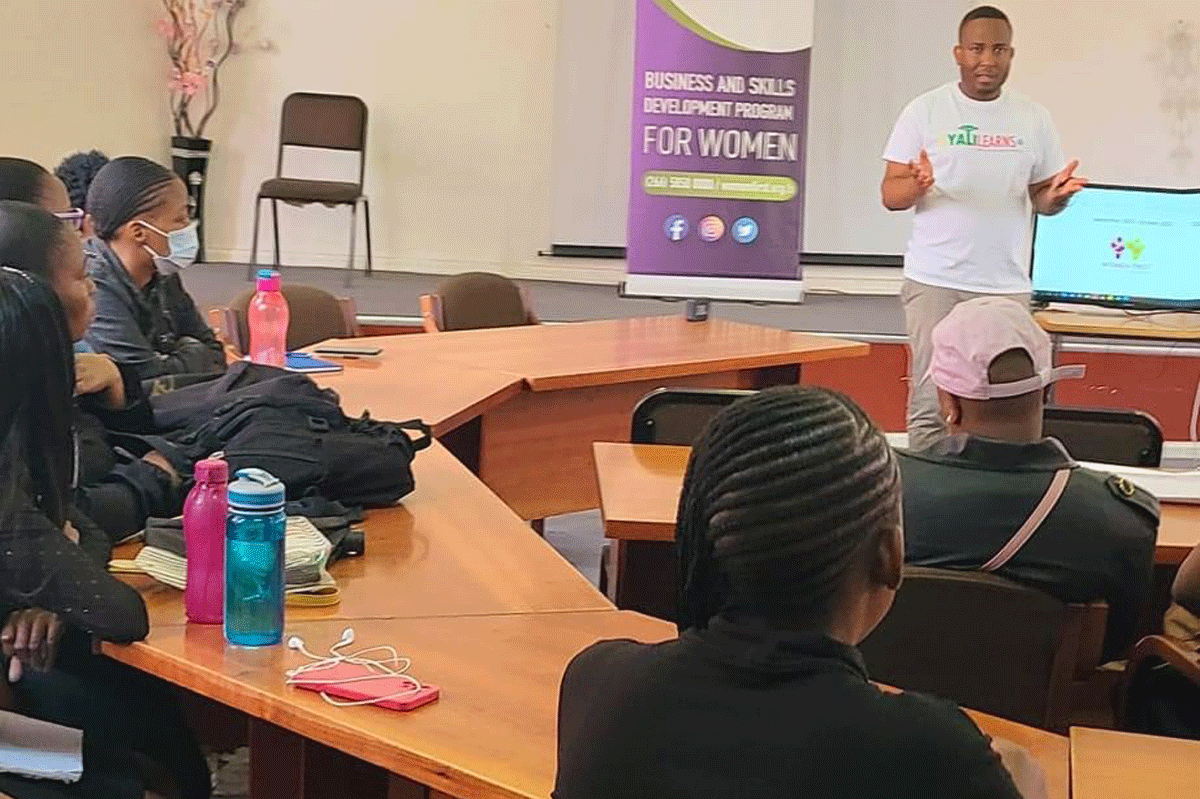
“I had a very tough time running an organization in my youth. I started the initiative at 25 and got the first grant after 34. I would have opportunities to volunteer, but they were seriously underpaid. Even as I run my organization today and would like to mentor younger people, there is not enough support to invest in mentorship. Our funding mechanisms should be flexible enough to support the payment of interns or the professional development initiatives we have within the organization. Young people’s initiatives should also be taken seriously and funded. Fundraising and other capacity-building initiatives for young people should also be available.”
Samantha is the of Signs of Hope Trust, a grassroots nonprofit that champions the rights of people with disabilities through disseminating information, advocating for their rights, and empowering them to become independent citizens who can participate fully in society.
“Flexibility in the funding ecosystem can significantly impact our organizations’ sustainability. Easy access to funding is crucial to the operation of our organizations and their ability to achieve our goals for a more equitable society.”
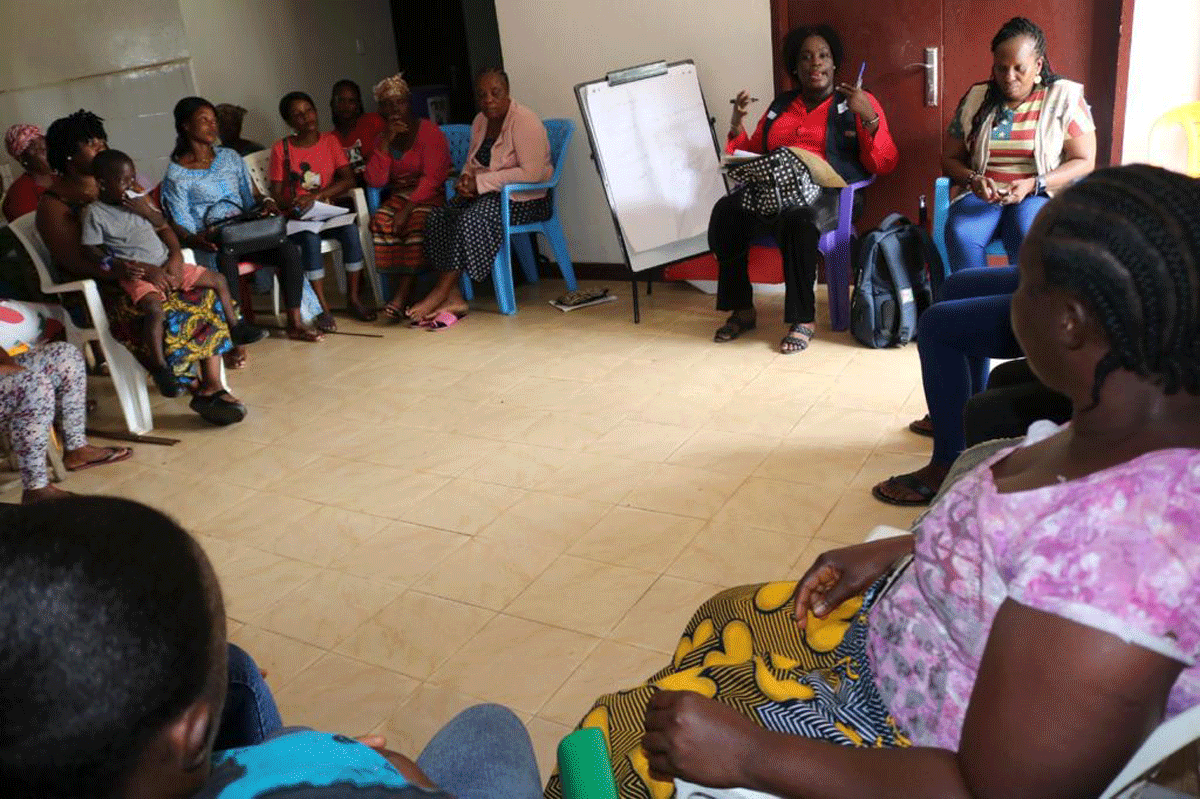
Salome is a Program Manager at Community Healthcare Initiative (CHI). With a focus on rural teenagers, CHI provides safe spaces for girls to discuss issues affecting them and educates girls about sexual and reproductive rights, health and hygiene, and the harmful effects of early marriage and female genital mutilation and cutting. CHI also advocates at the national level for better protection for girls across Liberia.
Header Photo: Chidinma addressing young people . © Mildheart Care Foundation.
